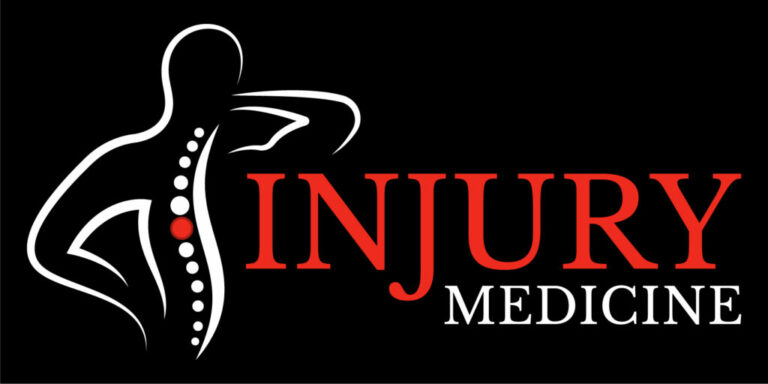- Broken Bones
When discussing fractures and the time it will take to heal, it is important to note where the bone is broken, in what pattern (open or closed), and whether it is displaced (shifted apart) or angulated.
Generally speaking, the more energy it takes to break a bone, the more damage is done to the bone and soft tissues, thus to the bone’s blood supply.
While some fractures can be treated with a cast, brace, or splint, others require surgery to repair the fracture with plates, screws, nails, or pins.
Everyone heals differently when it comes to fractures. Factors such as the fracture’s type, the level of care offered, and the age of the person who sustains the fracture affect the total duration. Nutrition, overall health, and smoking status are also important factors.
Let’s discuss how long it takes for fractures to heal and how Injury Medicine’s Easley Injury Clinic can treat broken bones. Our clinic offers the latest medical technologies, including X-ray, CT scan, and MRI imaging, to diagnose fractures accurately.
For now, let’s learn more about fractures and the time they take to heal!
What Is a Fracture?
A fracture is a break or crack in a bone. Various incidents, such as a fall, a car accident, or an impact injury, can cause fractures. In some cases, a fracture can even be caused by something as simple as overexertion (if you’re lifting a lot or working out very hard).
Regardless of the cause, a bone fracture can cause excruciating pain and necessitates immediate medical attention. When a bone breaks, the two ends may separate, shift out of place, or even break into several pieces.
Fractures can vary significantly in severity, ranging from simple stress fractures to open fractures. Stress fractures are small cracks typically due to overuse or repetitive motion, while open fractures occur when the broken bone breaks through the skin and leaves an open wound.
You must seek immediate treatment for any fracture to reduce the risk of long-term complications or disability.
How Long Does It Take for Fractures to Heal?
Fracture healing times can vary greatly depending on the severity and type of fracture.
On average, most fractures heal in 6-8 weeks.
Stress fractures can take several months to heal. Whereas, severe fractures, such as those caused by high-energy trauma, such as a car accident or a fall from a great height, may necessitate surgical intervention and require more time to heal.
Understanding that healing times vary depending on the person and fracture is critical. The patient’s age, general health, and activity level are all factors that influence healing time.
Certain fractures may require traction or a cast. Such fractures often take longer to heal due to the external devices used to maintain proper alignment of the bone fragments during healing. Even after immobilization with traction or a cast is no longer necessary, the fracture may take several weeks to heal fully.
Nutrition is also important for bone health and fracture healing. Consuming foods rich in calcium and other minerals essential for bone health can help promote healthy healing. Exercise can also help improve circulation around the fracture site and aid in healing.
A qualified healthcare provider from an Easley, South Carolina injury center can advise you specifically on how long your fracture may take to heal. They’ll also give you detailed instructions on what you can do to facilitate a healthy recovery.
Fracture Healing Is Divided Into Three Phases
Broken bones heal in three phases.
1) Inflammatory Phase
This begins at the time of injury and lasts approximately 1-2 weeks.
The bleeding around the fracture forms a hematoma or clot at the bone ends. Tissue damage causes cell death and this cellular debris is cleaned up by an inflammatory response. Following this, the blood clot organizes into a protein mesh, where the bone begins to “knit.”
2) Repair Phase
This phase lasts 2-3 weeks and involves actual tissue repair and forming new living cells of bone, cartilage, and fibrous tissue at the fracture site. As a result, a rubbery tissue known as a “fracture callus” forms.
Calcium deposits in the callus and is visible on x-rays 2-3 weeks after injury.
3) Remodeling Phase
This phase occurs when the fracture callus is replaced by a strong, organized bone. Remodeling continues for months after the fracture has stopped hurting and appears to be healed on x-rays.
Can You Help Fractures Heal Faster?
Here are some things you can do to help a broken bone heal faster.
Follow Your Doctor’s Instructions
First of all, consult with your doctor and follow their instructions without question. Some fractures may necessitate earlier joint activity to expedite fracture healing. In other cases, the fractured area must be immobilized and not allowed to bear weight.
We know that muscle use in the injured limb improves blood flow, reduces swelling, and accelerates nutrient exchange to damaged tissues. It also aids in the reduction of stiffness and muscle atrophy (shrinkage). But this is not true for all fractures.
Get Good Nutrition
Eat a healthy, well-balanced diet – your nutritionist can better fill you in on this. Protein and vitamins C, D, and K are all required for bone healing. Essential minerals like calcium, magnesium, phosphorus, and zinc are also vital for bone formation and healing.
Stop Smoking
If you’re a smoker, this might be the perfect time to quit. Letting go of cigarettes is not only good for your overall health but will also aid fracture healing. Smoking reduces fine capillary blood flow, which is necessary for healing from fractures.
Be Careful About The Medicines You Take
Avoid taking high doses of non-steroidal anti-inflammatory drugs like ibuprofen or naproxen. These medications can interfere with the early stages of fracture healing.
Reach Out to Our Easley, South Carolina Injury Clinic For Help
At Injury Medicine, our team of medical professionals is dedicated to helping patients recover from fractures. Our experienced orthopedic specialists will assess your injury, create a treatment plan for you, and provide comprehensive care.
Your personalized treatment plan will include rest, physical therapy, and specialized medical treatments like bracing or casting (as needed). We also offer advanced treatments such as arthroscopy and joint replacement.
Our Easley, South Carolina injury clinic is dedicated to helping you recover quickly by providing early diagnosis, effective treatment, and personalized follow-up care.
If you’ve suffered from a fracture in an accident, contact us today for timely and thorough medical care!





